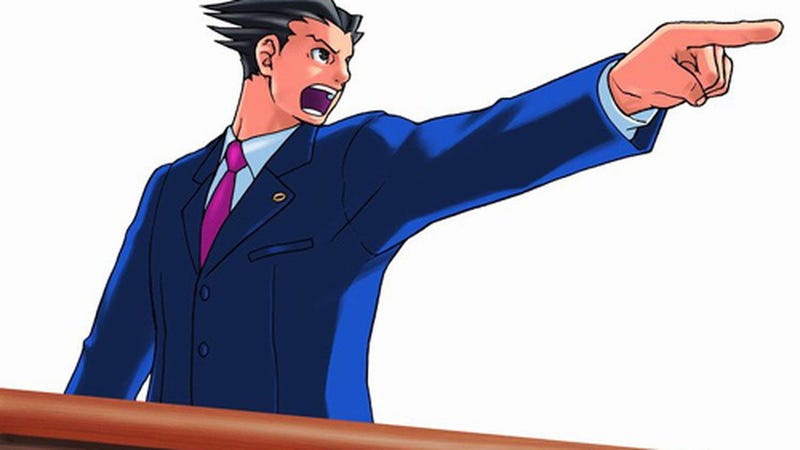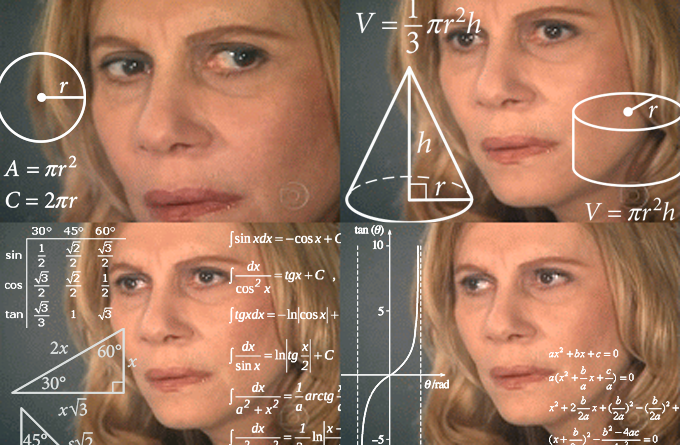Welcome back, everyone! I am Hero's Shade, and this time around I have decided to take on a particular mystery that has perplexed fans of Zelda ever since the release of Ocarina of Time back in 1998 (seriously, 20 years ago? God, I feel old), what is known as the Windmill Paradox, aka the Song of Storms Paradox or Music Man Paradox.
For those of you who are unfamiliar with the game,
But... if Link played the song in the past after he learned it from the music man in the future, who in the past learned it from Link...and...

Alright, so it is likely that Nintendo's developers just put this in the game as a throwaway gag to be joked about later on. But that answer is simply unsatisfactory to me. After all, what kind of nerdy internet theorist would I be if I didn't analyze and over-complicate something that isn't meant to be given that much thought?
In all seriousness, jokes and Easter eggs like this can become part of a series' official lore. For example, the infamous Bat Shark Repellent has become canonically an item stored in Batman and Robin's arsenal, and numerous quotes and one-shot references from Star Wars: A New Hope have become the building blocks for three prequels and entire episodes and seasons of the Clone Wars cartoons, not to mention those cartoons themselves.
So, from a lore perspective, where did the Song of Storms come from in the first place, and how did Link learn it? To answer that, we'll have to explore how time travel works in the Zelda series, so buckle up. It's going to get more complicated from here.
To start off, I will explain some of the various methods of time travel and how they differentiate from one another.
First, we have the Ocarina of Time, which is capable of performing various magical spells via playing the right notes on it. For instance we have songs that warp Link to various locations and the aforementioned Song of Storms, which is capable of summoning strong wind, heavy rain, and lightning, although the primary function is time manipulation.
You may want to take note on how I used the phrase 'time manipulation' instead of 'time travel'. I'll get to the finer details of the latter later on, but let's say for instance Link plays the Sun's Song. The Sun's Song, as the name suggests, causes sunrise or sunset. Contrary to what... certain... websites and wikis may have you believe, this melody does not actually affect the gravitational cycles of the Earth or moon, Link is actually accelerating time to the next interval that would begin night or day. This is proven by the fact that the guard in front of Kakariko Village who keeps track of time will indicate that time has passed whenever you use the song, and while Biggoron is crafting you the two-handed weapon Biggoron's Sword you must wait a few days for him to complete it, but you can just play the Sun's Song a few times to get it right away. This is also very similar to how the Song of Double Time works in Majora's Mask.
Keep that in mind, as this is different from how he time travels works when pulling out or replacing the Master Sword from its pedestal.
There are those who use the timeline split in OoT as a reference to indicate that Link creates an alternate timeline, as well as an alternate timeline version of himself every time he withdraws or removes the Master Sword. I'm sorry to say, but they've got it all wrong.
When the Hero of Time pulled out the Master Sword, it essentially judged his worthiness and determined he would not be ready until he was older (Though Wind Waker Link wields it with no problem. I guess it didn't want to repeat the same mistake it made here by leaving a portal open and letting Ganon get the Triforce of Power. Hindsight is 20/20.), therefore Link's Spirit was sealed in the Chamber of Sages for seven years. Alternatively, Link can replace the Master Sword back in the pedestal to return his spirit seven years back into his child body.
There is no new version of Link or any new timeline being created here, it's the same Link being put into a magical coma, with his spirit and consciousness traveling back and forth between his child and adult bodies in the past and future. Now, this by no means contradicts the timeline for a multitude of reasons, but that's a whole other can of worms I don't want to open right now.
The point here I'm trying to make is that when Link transfers his spirit into his future body, everything he did as a child has already happened, since this is all the same time continuity. This is true for the Spirit Temple, where Link has to go back in time to retrieve the Silver Gauntlets and return as an adult in order to save Nabooru and complete the dungeon. In the future, you will also find the unbeatable Running Man in the tent in front of the bridge to Gerudo Valley, who you gave the Bunny Hood years ago, as well as the Skull Kid in the Lost Woods who you find playing Saria's Song that you taught to him as a child. This concept is also seen again in Twilight Princess, where you find an old opened chest. Then, you travel to the past and open it. This means in the present time, Link found it open because he already opened it in the past.
What this means is that when Link is in the future, he already played the Song of Storms and messed up the windmill, even though he hadn't traveled back and done it yet from his perspective. But doesn't that leave the question of who taught Link the song unanswered? No, actually. He learned it from the music man.
If you pay close attention to him in the past, he says that he wants to write a song inspired by the windmill, going around and around and around. Naturally, Link has a talent for imitating songs he hears. We've seen him do it before with Malon's humming and Sheik's Harp. And typically, music boxes only play one song, unless programmed to play something else.
So, there we have it! Link simply copied the notes from the music man, and the magical properties of the OoT caused it to summon a storm. And we're done! Good night, everybody!
...
Oh dear.
See, the sequel complicates things even further. Majora's Mask takes places some time after Link defeated Ganondorf and Zelda returns him to his own time to have a childhood and grow up naturally. As a child, Link ventures to find Navi and comes across the land of Termina.
A bunch of other stuff happened, but while there, he learned the Song of Storms from Flat, one of the royal Composer Brothers. Now... how could it be possible that the music man and Flat wrote the Song of Storms, and that Link only learned it after he went to Termina? Not only that, but there is also a pair of Composer Brothers that serve the Hyrule family and happen to be named Flat and Sharp, and look exactly the same.
In regards to Link learning the Song of Storms from Flat, remember, everything Link does in the past already happened seven years ago from the perspective of future Link, so child Link would still have known the Song of Storms from Flat and played it at the windmill.
It's an existing fan theory, and certainly a fascinating one. However, that doesn't answer any of the other burning questions. And to do that, we need to talk about PARALLEL UNIVERSES!
Yes, as if time travel shenanigans wasn't enough, we now can add parallel universes into this clusterfuck.
It is stated in several guidebooks that Termina is a world parallel to Hyrule, similar to the Dark World, the Twilight Realm, and Lorule. This is how identical or identical-looking characters can exist in parallel to their OoT counterparts and some of the same things can exist in both worlds, even with different origins. (The real world explanation is that the developers only had a year to finish the game and had to resort to using a lot of the same character models to cut down on time.)
So, that means that one of three things is happening here:
A, Link really did copy it from the music man in the first place and the version by the Composer Brothers is parallel to the OoT counterpart.
B, Either Link or the music man read the music notes from Sharp and Flat's gravestones in the Kakariko Graveyard for inspiration (the Sun's Song and the Song of Storms to sound very similar)
Or C, Link learned it in Termina, returned to Hyrule, and played it in the windmill, "closing the time loop", so to speak.
Now, I'll admit these theories are by no means flawless. I've mentioned before that at the end of Ocarina of Time, Zelda sends Link back to the past. And after that, Link sets out on his adventure in Majora's Mask. So... this presents another paradox.
How can Link complete his journey in Ocarina of Time if child Link doesn't learn it until the events of Majora's Mask, after Link defeated Ganondorf and left the Master Sword in the Temple of Time? And Link never using the Master Sword to travel back to his future body again (that we know of, at least) and growing up naturally after that point is what created the timeline split into the child and adult timelines (because the future Link that emerged from the Chamber of Sages after seven years technically still existed), so how could he play it in front of the music man to teach it to his future self if it's after the time split?
Well, the fact of the matter is that the music man in the future still plays it, we just have a little more insight to it now thanks to MM and other lore. Perhaps MM has nothing to do with it, in fact I doubt the idea that the sequel would give some explanation crossed their minds, since they didn't even know they'd be making a direct sequel until after the fact. But that's nothing a little retroactive continuity wouldn't fix, and all it would really take is one little reference or interview statement to make it canon.
But alas, for now, we can only speculate. It truly is a song that goes around and around and around.
Now if you'll excuse me, I need to heal my brain's sorrow's.
I am Hero's Shade, and I'll see you all next time.


